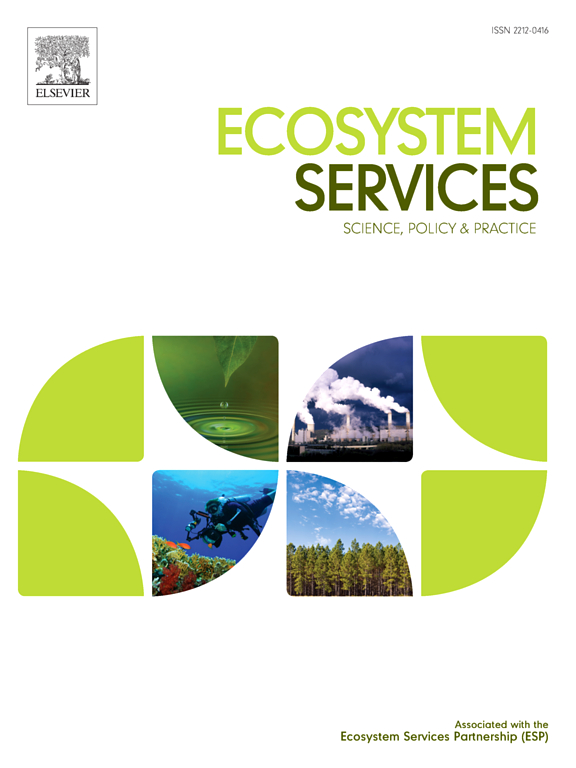A framework based on payments for ecosystem services to support the delivery of high integrity carbon and biodiversity credits
IF 6.6
2区 环境科学与生态学
Q1 ECOLOGY
引用次数: 0
Abstract
There is an urgent need to address the gap in funding between existing governmental commitments to combat the twin global crises of climate change and biodiversity loss and the finances required to meet globally agreed targets in these areas. Carbon and biodiversity credit schemes are increasingly recognised as a means to mobilise private sector contributions towards this shortfall whilst enabling innovative mitigation and adaptation to the impacts of climate change and biodiversity decline. Furthermore, it is widely recognised that natural resource management programmes must achieve the active support of local communities if they are to realise their intended outcomes.
However, there are no guiding principles relating to how carbon and biodiversity credit schemes can address this requirement. This paper contributes towards this objective through providing the first framework to inform the design of carbon and biodiversity credit schemes which incorporate the rights, needs and preferences of local individuals and communities. Adoption of this framework will help to facilitate the flow of ‘high integrity’ credits in the carbon and biodiversity markets which are essential if these schemes are to meet their full potential.
一个基于生态系统服务支付的框架,以支持提供高完整性的碳和生物多样性信用
目前迫切需要解决政府应对气候变化和生物多样性丧失这两大全球危机的现有承诺与实现这些领域全球商定目标所需资金之间的资金缺口。人们日益认识到,碳和生物多样性信用计划是一种手段,可以动员私营部门为填补这一缺口作出贡献,同时能够创新地缓解和适应气候变化和生物多样性下降的影响。此外,人们普遍认识到,自然资源管理方案如果要实现其预期成果,就必须得到当地社区的积极支持。然而,没有关于碳和生物多样性信用计划如何解决这一要求的指导原则。本文通过提供第一个框架来为碳和生物多样性信用计划的设计提供信息,从而为实现这一目标做出了贡献,该计划包含了当地个人和社区的权利、需求和偏好。采用这一框架将有助于促进碳和生物多样性市场中“高完整性”信用的流动,如果这些计划要充分发挥其潜力,这是必不可少的。
本文章由计算机程序翻译,如有差异,请以英文原文为准。
求助全文
约1分钟内获得全文
求助全文
来源期刊

Ecosystem Services
ECOLOGYENVIRONMENTAL SCIENCES&-ENVIRONMENTAL SCIENCES
CiteScore
14.90
自引率
7.90%
发文量
109
期刊介绍:
Ecosystem Services is an international, interdisciplinary journal that is associated with the Ecosystem Services Partnership (ESP). The journal is dedicated to exploring the science, policy, and practice related to ecosystem services, which are the various ways in which ecosystems contribute to human well-being, both directly and indirectly.
Ecosystem Services contributes to the broader goal of ensuring that the benefits of ecosystems are recognized, valued, and sustainably managed for the well-being of current and future generations. The journal serves as a platform for scholars, practitioners, policymakers, and other stakeholders to share their findings and insights, fostering collaboration and innovation in the field of ecosystem services.
 求助内容:
求助内容: 应助结果提醒方式:
应助结果提醒方式:


